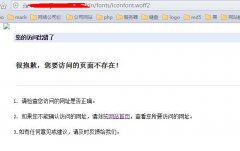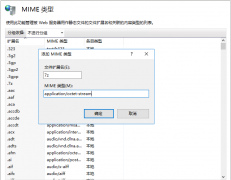centos下fail2ban安装与配置详解
时间:2016-09-25
一、fail2ban简介
fail2ban可以监视你的系统日志,然后匹配日志的错误信息(正则式匹配)执行相应的屏蔽动作(一般情况下是防火墙),而且可以发送e-mail通知系统管理员,是不是很好、很实用、很强大!
二、简单来介绍一下fail2ban的功能和特性
1、支持大量服务。如sshd,apache,qmail,proftpd,sasl等等
2、支持多种动作。如iptables,tcp-wrapper,shorewall(iptables第三方工具),mail notifications(邮件通知)等等。
3、在logpath选项中支持通配符
4、需要Gamin支持(注:Gamin是用于监视文件和目录是否更改的服务工具)
5、需要安装python,iptables,tcp-wrapper,shorewall,Gamin。如果想要发邮件,那必需安装postfix/sendmail
三、fail2ban安装与配置操作实例
1:安装epel更新源:http://fedoraproject.org/wiki/EPEL/zh-cn
or
# wget http://dl.fedoraproject.org/pub/epel/6/i386/fail2ban-0.8.11-2.el6.noarch.rpm
# rpm -ivh fail2ban-0.8.11-2.el6.noarch.rpm
or
# wget http://ftp.sjtu.edu.cn/fedora/epel//5/i386/fail2ban-0.8.4-29.el5.noarch.rpm
# rpm -ivh fail2ban-0.8.4-29.el5.noarch.rpm
2:源码包安装
# wget https://codeload.github.com/fail2ban/fail2ban/tar.gz/0.9.0
# tar -xzvf fail2ban-0.9.0.tar.gz
# cd
# ./setup.py
# cp files/solaris-svc-fail2ban /lib/svc/method/svc-fail2ban
# chmod +x /lib/svc/method/svc-fail2ban
安装路径
/etc/fail2ban
action.d filter.d fail2ban.conf jail.conf
我们主要编辑jail.conf这个配置文件,其他的不要去管它.
# vi /etc/fail2ban.conf
SSH防攻击规则
[ssh-iptables]
enabled = true
filter = sshd
action = iptables[name=SSH, port=ssh, protocol=tcp]
sendmail-whois[name=SSH, dest=root, sender=fail2ban@example.com, sendername="Fail2Ban"]
logpath = /var/log/secure
maxretry = 5
[ssh-ddos]
enabled = true
filter = sshd-ddos
action = iptables[name=ssh-ddos, port=ssh,sftp protocol=tcp,udp]
logpath = /var/log/messages
maxretry = 2
[osx-ssh-ipfw]
enabled = true
filter = sshd
action = osx-ipfw
logpath = /var/log/secure.log
maxretry = 5
[ssh-apf]
enabled = true
filter = sshd
action = apf[name=SSH]
logpath = /var/log/secure
maxretry = 5
[osx-ssh-afctl]
enabled = true
filter = sshd
action = osx-afctl[bantime=600]
logpath = /var/log/secure.log
maxretry = 5
[selinux-ssh]
enabled = true
filter = selinux-ssh
action = iptables[name=SELINUX-SSH, port=ssh, protocol=tcp]
logpath = /var/log/audit/audit.log
maxretry = 5
proftp防攻击规则
[proftpd-iptables]
enabled = true
filter = proftpd
action = iptables[name=ProFTPD, port=ftp, protocol=tcp]
sendmail-whois[name=ProFTPD, dest=you@example.com]
logpath = /var/log/proftpd/proftpd.log
maxretry = 6
邮件防攻击规则
[sasl-iptables]
enabled = true
filter = postfix-sasl
backend = polling
action = iptables[name=sasl, port=smtp, protocol=tcp]
sendmail-whois[name=sasl, dest=you@example.com]
logpath = /var/log/mail.log
[dovecot]
enabled = true
filter = dovecot
action = iptables-multiport[name=dovecot, port="pop3,pop3s,imap,imaps,submission,smtps,sieve", protocol=tcp]
logpath = /var/log/mail.log
[dovecot-auth]
enabled = true
filter = dovecot
action = iptables-multiport[name=dovecot-auth, port="pop3,pop3s,imap,imaps,submission,smtps,sieve", protocol=tcp]
logpath = /var/log/secure
[perdition]
enabled = true
filter = perdition
action = iptables-multiport[name=perdition,port="110,143,993,995"]
logpath = /var/log/maillog
[uwimap-auth]
enabled = true
filter = uwimap-auth
action = iptables-multiport[name=uwimap-auth,port="110,143,993,995"]
logpath = /var/log/maillog
apache防攻击规则
[apache-tcpwrapper]
enabled = true
filter = apache-auth
action = hostsdeny
logpath = /var/log/httpd/error_log
maxretry = 6
[apache-badbots]
enabled = true
filter = apache-badbots
action = iptables-multiport[name=BadBots, port="http,https"]
sendmail-buffered[name=BadBots, lines=5, dest=you@example.com]
logpath = /var/log/httpd/access_log
bantime = 172800
maxretry = 1
[apache-shorewall]
enabled = true
filter = apache-noscript
action = shorewall
sendmail[name=Postfix, dest=you@example.com]
logpath = /var/log/httpd/error_log
nginx防攻击规则
[nginx-http-auth]
enabled = true
filter = nginx-http-auth
action = iptables-multiport[name=nginx-http-auth,port="80,443"]
logpath = /var/log/nginx/error.log
lighttpd防规击规则
[suhosin]
enabled = true
filter = suhosin
action = iptables-multiport[name=suhosin, port="http,https"]
# adapt the following two items as needed
logpath = /var/log/lighttpd/error.log
maxretry = 2
[lighttpd-auth]
enabled = true
filter = lighttpd-auth
action = iptables-multiport[name=lighttpd-auth, port="http,https"]
# adapt the following two items as needed
logpath = /var/log/lighttpd/error.log
maxretry = 2
vsftpd防攻击规则
[vsftpd-notification]
enabled = true
filter = vsftpd
action = sendmail-whois[name=VSFTPD, dest=you@example.com]
logpath = /var/log/vsftpd.log
maxretry = 5
bantime = 1800
[vsftpd-iptables]
enabled = true
filter = vsftpd
action = iptables[name=VSFTPD, port=ftp, protocol=tcp]
sendmail-whois[name=VSFTPD, dest=you@example.com]
logpath = /var/log/vsftpd.log
maxretry = 5
bantime = 1800
pure-ftpd防攻击规则
[pure-ftpd]
enabled = true
filter = pure-ftpd
action = iptables[name=pure-ftpd, port=ftp, protocol=tcp]
logpath = /var/log/pureftpd.log
maxretry = 2
bantime = 86400
mysql防攻击规则
[mysqld-iptables]
enabled = true
filter = mysqld-auth
action = iptables[name=mysql, port=3306, protocol=tcp]
sendmail-whois[name=MySQL, dest=root, sender=fail2ban@example.com]
logpath = /var/log/mysqld.log
maxretry = 5
apache phpmyadmin防攻击规则
[apache-phpmyadmin]
enabled = true
filter = apache-phpmyadmin
action = iptables[name=phpmyadmin, port=http,https protocol=tcp]
logpath = /var/log/httpd/error_log
maxretry = 3
# /etc/fail2ban/filter.d/apache-phpmyadmin.conf
将以下内容粘贴到apache-phpmyadmin.conf里保存即可以创建一个apache-phpmyadmin.conf文件.
# Fail2Ban configuration file
#
# Bans bots scanning for non-existing phpMyAdmin installations on your webhost.
#
# Author: Gina Haeussge
#
[Definition]
docroot = /var/www
badadmin = PMA|phpmyadmin|myadmin|mysql|mysqladmin|sqladmin|mypma|admin|xampp|mysqldb|mydb|db|pmadb|phpmyadmin1|phpmyadmin2
# Option: failregex
# Notes.: Regexp to match often probed and not available phpmyadmin paths.
# Values: TEXT
#
failregex = [[]client []] File does not exist: %(docroot)s/(?:%(badadmin)s)
# Option: ignoreregex
# Notes.: regex to ignore. If this regex matches, the line is ignored.
# Values: TEXT
#
ignoreregex =
# service fail2ban restart
写在最后,在安装完fail2ban后请立即重启一下fail2ban,看是不是能正常启动,因为在后边我们配置完规则后如果发生无法启动的问题我们可以进行排查.如果安装完后以默认规则能够正常启动,而配置完规则后却不能够正常启动,请先检查一下你 /var/log/ 目录下有没有规则里的 logpath= 后边的文件,或者这个文件的路径与规则里的是不是一致. 如果不一致请在 logpath 项那里修改你的路径, 如果你的缓存目录里没有这个文件,那么请你将该配置项的 enabled 项目的值设置为 false. 然后再进行重启fail2ban,这样一般不会有什么错误了.
 网站无法加载woff字体文件的解决办法?有客户反馈在安装网站后,woff、woff2字体无法加载,导致无法显示图标文件,这种情况要怎么解决呢? 这是因为服务器IIS默认是没有SVG,WOFF,WOFF2这几个文件类型的扩展的,
网站无法加载woff字体文件的解决办法?有客户反馈在安装网站后,woff、woff2字体无法加载,导致无法显示图标文件,这种情况要怎么解决呢? 这是因为服务器IIS默认是没有SVG,WOFF,WOFF2这几个文件类型的扩展的, 网站服务器不支持.7z文件下载的解决方法7-Zip是一款号称有着现今最高压缩比的压缩软件,它不仅支持独有的7z文件格式,而且还支持各种其它压缩文件格式,其中包括ZIP, RAR, CAB, GZIP, BZIP2和TAR。此软件压缩的压
网站服务器不支持.7z文件下载的解决方法7-Zip是一款号称有着现今最高压缩比的压缩软件,它不仅支持独有的7z文件格式,而且还支持各种其它压缩文件格式,其中包括ZIP, RAR, CAB, GZIP, BZIP2和TAR。此软件压缩的压